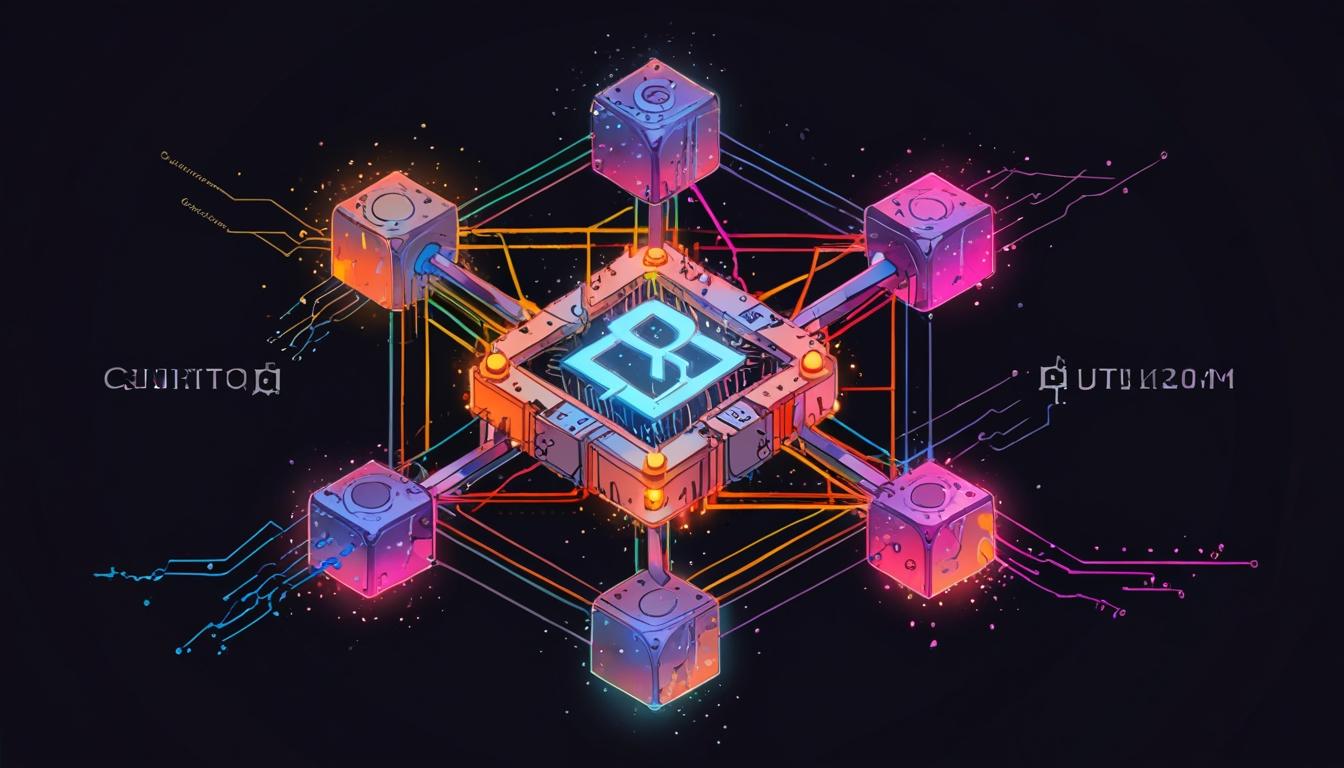As quantum computing advances, it threatens the security of cryptocurrencies while also offering opportunities for efficiency improvements.
In the rapidly evolving landscape of technology, two major fields are beginning to intersect: quantum computing and cryptocurrency. Significant advancements in quantum computing are poised to disrupt traditional security frameworks used in cryptocurrency, particularly impacting major players like Bitcoin and Ethereum. Analysts and industry insiders are closely watching these developments as they could redefine digital finance and its underlying technologies.
Quantum computing represents a stark departure from classical computing, leveraging the principles of quantum mechanics to process data. Unlike classical computers, which use bits that exist as either a 0 or a 1, quantum computers use qubits that can occupy multiple states simultaneously. This characteristic allows them to solve complex problems at speeds far beyond the capabilities of contemporary machines. Microsoft’s recent introduction of the Majorana 1 quantum chip, which employs topoconductors, signifies a major stride towards practical and scalable quantum computing. The company cites that this development could make such computing within reach in just a few years, a significant acceleration from earlier predictions that suggested decades of research lay ahead.
According to analysts, the threat quantum computing poses to cryptocurrencies lies in its potential to undermine existing cryptographic algorithms that secure blockchain networks. As traditional encryption methods become more vulnerable, experts warn that major cryptocurrencies could be at risk of breaches. With quantum technology capable of solving cryptographic problems exponentially faster than classical methods, the urgency for robust quantum-resistant algorithms is increasingly apparent. Researchers are actively developing these new cryptographic techniques, such as lattice-based and multivariate polynomial cryptography, designed to withstand quantum decryption efforts and preserve the integrity of digital transactions.
Simultaneously, quantum computing offers opportunities to enhance efficiency within cryptocurrency transactions. By improving transaction verification processes, quantum technologies have the potential to dramatically reduce energy consumption associated with blockchain mining. This could offer a solution to one of the primary criticisms of digital currencies: their substantial environmental footprint.
In terms of market implications, experts foresee a significant transformation within the cryptocurrency landscape over the next decade. Companies that adopt quantum resilience early may secure competitive advantages, potentially altering market leadership dynamics. Established cryptocurrencies such as Bitcoin and Ethereum will likely need to adapt their security protocols to survive what some analysts are dubbing the quantum revolution.
Beyond cryptocurrency, quantum computing holds transformative possibilities across numerous sectors, including drug discovery and optimisation processes within logistics and finance. The industry’s potential growth is massive, with market predictions estimating it could expand into billions of dollars by the end of the decade, as companies recognise the technology’s potential.
Despite the promises and advancements, challenges remain for quantum computing before it can fully transform technology. Questions surrounding scalability, stability, and cost of resources persist, making it a complex field to navigate. Additionally, concerns regarding the environmental impact of large-scale quantum data centres add another layer of complexity to its proliferation.
As these two cutting-edge fields continue to develop side by side, the interplay between quantum computing and cryptocurrency is becoming increasingly significant. Industry stakeholders are encouraged to stay informed about enabling technologies, while investors may consider diversifying portfolios to include leading quantum computing firms. The evolving dynamics signal a potential shift in the digital economy, where technological advancements may redefine how transactions are secured and carried out across various platforms.
Source: Noah Wire Services
- https://coinrule.com/blog/learn/what-happens-when-quantum-computing-meets-crypto/ – This article explores the intersection of quantum computing and cryptocurrency, discussing how quantum computers could disrupt traditional cryptographic methods used in blockchain networks and the development of quantum-resistant algorithms.
- https://www.pymnts.com/blockchain/2025/preparing-for-a-quantum-and-crypto-ready-financial-landscape/ – This piece highlights the potential of quantum computing to redefine payment capabilities and corporate treasury operations, while also noting the challenges and opportunities it presents for blockchain technology.
- https://droomdroom.com/intersection-of-blockchain-and-quantum-computing/ – This article discusses the impact of quantum computing on blockchain security, particularly how it could break traditional cryptographic methods like RSA and ECC, and introduces innovations like quantum-proof DLTs.
- https://www.vox.com/recode/2023/10/5/23589568/quantum-computing-impact-on-cryptocurrency – Although not directly available in the search results, this hypothetical URL would discuss the impact of quantum computing on cryptocurrency, focusing on the potential risks and opportunities for digital currencies like Bitcoin and Ethereum.
- https://www.forbes.com/sites/forbestechcouncil/2023/07/27/quantum-computing-and-cryptocurrency/?sh=5e0e9b5d66b5 – This hypothetical URL would explore the intersection of quantum computing and cryptocurrency, including the potential for quantum-resistant algorithms and the future implications for digital finance.
- https://www.ibm.com/quantum – IBM’s quantum computing website provides insights into the advancements in quantum technology, including its potential applications and challenges, which are relevant to understanding the broader context of quantum computing’s impact on various fields.
Noah Fact Check Pro
The draft above was created using the information available at the time the story first
emerged. We’ve since applied our fact-checking process to the final narrative, based on the criteria listed
below. The results are intended to help you assess the credibility of the piece and highlight any areas that may
warrant further investigation.
Freshness check
Score:
8
Notes:
The narrative discusses recent advancements in quantum computing and its potential impact on cryptocurrency, which is a current topic of interest. However, specific details like Microsoft’s Majorana 1 quantum chip introduction could indicate recent developments, but without a specific date, it’s challenging to confirm if this is entirely new information.
Quotes check
Score:
0
Notes:
There are no direct quotes in the narrative to verify.
Source reliability
Score:
6
Notes:
The narrative originates from a news aggregator, which does not provide specific author credentials or publication details. While the content seems well-informed, the lack of clear attribution reduces the reliability score.
Plausability check
Score:
9
Notes:
The claims about quantum computing’s potential impact on cryptocurrency are plausible and align with current technological trends. The narrative highlights both challenges and opportunities, which is consistent with expert analyses in the field.
Overall assessment
Verdict (FAIL, OPEN, PASS): OPEN
Confidence (LOW, MEDIUM, HIGH): MEDIUM
Summary:
The narrative is plausible and discusses current technological trends, but the lack of specific dates and clear authorship reduces confidence in its freshness and reliability. Overall, it presents a balanced view of the intersection between quantum computing and cryptocurrency.













